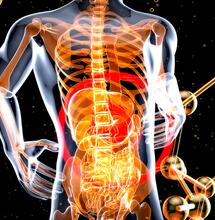Can a Breath Test Tell if You're Stoned?

A new study has illustrated the difficulty of developing a breathalyser-like device for cannabis: Even when using carefully collected samples and laboratory analysis, researchers found THC levels were too inconsistent to tell whether someone had smoked marijuana recently.
The findings from researchers from the University of Colorado Boulder and the University of Colorado Boulder and Technology (NIST) revealed that they could not "support the idea that detecting THC in breath as a single measurement could reliably indicate recent cannabis use".
As more states have legalised cannabis, scientists and entrepreneurs have been scrambling to develop field sobriety tests for THC, with some pursuing breathalyser-inspired devices.
To conduct the study, researchers took breath and blood samples from 18 participants who smoked the same cannabis at about 25% THC. Samples were collected 15 minutes before and an hour after the participants had smoked cannabis.
The agency carrying out the research has stated that it is not working on developing a roadside breathalyser device but instead seeking to better understand "the basics of how to measure THC and related compounds in breath accurately."
Of 14 participants who provided breath samples before and after smoking marijuana, eight " showed an increase in THC after cannabis use," authors wrote. In the rest of the results, "THC was not detected in three post-use breath extracts, and the remainder of post-use extracts were similar to or lower than baseline extracts," wrote researchers.
The team expected to find more elevated THC concentrations in breath samples collected after the test subjects smoked cannabis. Instead, the measurements could not tell whether the test subject smoked within the last hour based on the concentration level of THC in their breath.
The research team recognised that the small scale of the study means that the results do not carry any statistical weight and that further research is required. As a result, NIST is currently conducting independent research that includes both smoking and vaping.
"Studying different modes of cannabis use and different breath sampling devices will enable us to determine how THC and other cannabis compounds enter the breath and are carried in breath."
Looking at other modes of consumption, like edibles and beverages, is essential for developing cannabis breath detection technology.
The Californian-based company, Hound Labs, said in 2015 that it anticipated the widespread rollout of a finished device to law enforcement by the end of 2016. Still, no cannabis field sobriety test has been successful enough for widespread adoption.












